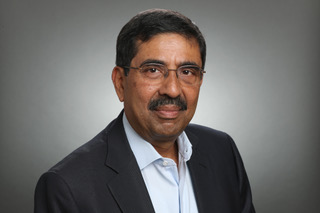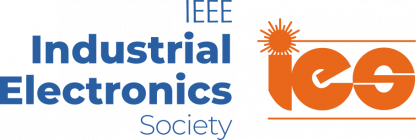Dr. Rajiv Kapur
Short Bio:

Rajiv Kapur received a BE (Chemical Engineering) degree from the Indian Institute of
Technology Roorkee in 1976 and M.S. in Industrial engineering and Ph.D. in 1981 from
University of Texas at Arlington (UTA). After graduating from UTA he was hired at
Georgetown University Medical Center (GUMC) as Supervisor of Management Engineering,
promoted to Director of Management Systems and subsequently Assistant Administrator,
Systems (chief information officer). As CIO he developed the first 4GL patient care information
system (PCIS). He has been invited to healthcare conferences across Germany, Austria, France,
and England to discuss PCIS. After GUMC he worked as VP and CIO in several health systems
before forming Cura Consulting Solutions, Inc. (Cura) that offered management, consulting, and
implementation services for hospital information systems.
He has held adjunct positions at San Jose State University (2005-2010) in the department of
industrial and systems engineering and Santa Clara University (2016-2021) in the department of
information systems and analytics. He has taught various undergraduate and graduate courses in
service systems, information systems, senior design projects, software platforms, supply chain,
and so on. He received an outstanding teaching award in the School of Business after his first
year of teaching at Santa Clara University. Since 2021 he is writing a book on digital strategies
to transform healthcare organizations. This book is designed for MS/MBA students, health care
organizations, HIT vendors, and entrepreneurs and has been accepted for publication by Taylor
& Francis.
Digital Health Platforms: A Transformative Model for Healthcare Organizations
Abstract:
According to the Centers for Medicare & Medicaid Services (CMS), US national health
expenditure grew 9.7% to $4.1 trillion in 2020 and accounted for 19.7% of GDP. This increase
in spending is projected to continue. Healthcare must be transformed.
The healthcare ecosystem comprises of healthcare organizations (HCOs) 1 , payers, employers,
regulators, vendors, academic institutions, tech startups and researchers. The Pandemic
accelerated healthcare’s transition towards telehealth with HCOs, payers (UnitedHealth and
Aetna) and large self-insured employers (Amazon and Walmart) providing virtual and at home
care (studies show at-home care models reduce costs by 30%). Additionally, value-based care
has been replacing fee-for-service (FFS) models to improve population health. These changes
have left HCOs unprepared on ways to adapt to the changing landscape.
This transformative model recommends transforming HCOs, using digital health platforms, to a
combination of digital & in-person care models. It utilizes a three-pronged implementation
strategy: a) digital health platforms, b) work redesign strategies, and c) advanced IT systems.
Each of these “prongs” must interact with one another continuously to improve patient
engagement, reduce costs, and improve health outcomes. This transformative model is designed
to reduce national healthcare expenditures.
1 HCOs include hospitals, clinics, nursing homes, surgical centers, pharmaceuticals, and
laboratories.
Dr. Kannan Govindan
Short Bio:

Professor Kannan Govindan is currently a Distinguished Professor with China Institute of
FTZ Supply Chain, Shanghai, China, the head of Intelligent Supply Chain Center and the Chair
Professor and Head of Center for Sustainable Supply Chain Engineering with the Department of
Technology and Innovation, University of Southern Denmark, Odense. He has been recognized
as a Highly Cited Researcher in ‘Engineering’ for five years in a row (2018, 2019, 2020, 2021,
and 2022) by Thomson-Reuters/Clarivate Analytics. He has published more than 400 international
journal articles (with 45300+ citations and an h-index of 113) in leading journals such as Nature,
European Journal of Operational Research, Omega, Decision Sciences, Journal of the
Operational Research Society, Journal of Environmental Management, Journal of Cleaner
Production, Computers & Industrial Engineering, Transportation Research Part E: Logistics and
Transportation Review, Transportation Research Part D: Transport and Environment, European
Management Journal, International Journal of Production Economics and International Journal
of Production Research. Many of his papers were selected as the ESI top 1% highly cited papers
or 0.1% hot papers and highlighted as the Key Scientific Articles contributing to the excellence in
Engineering and Environmental research. He is an executive editor of the Journal of Cleaner
Production, Associate Editor of Transportation Research Part E: Logistics and Transportation
Review, Senior Editor of Industrial Management and Data Systems, Editor of Annals of
Operations Research, an area Editor of INFOR: Information Systems and Operational Research,
and was a Guest Editor in journals such as Decision Sciences, European Journal of Operations
Research, Computers and OR, Annals of OR, Journal of Cleaner Production, International
Journal of Production Economics. Finally, he is an Editorial Board Member of several
international journals. His research interests include digital supply chain, industry 4.0 on supply
chain, sustainable development goals, reverse logistics, closed-loop supply chain, digitalized
sustainable circular economy, green supply chain management, and sustainable supply chain
management.
Circular Economy 4.0: Transition towards Sustainability, Circular Economy, and Digitalization
Abstract:
The increasing global population embodies new consumption and production patterns. Those
challenges and rapid changes that create new opportunities and issues have become a significant
potential threat to future generations. The United Nations (UN) has developed 17 Sustainable
Development Goals (SDGs) to confront these challenges within its 2030 agenda. However, recent
issues such as COVID-19, climate change, and the increase in the cost of resources have made the
circular supply chain more complex. To mitigate these issues, scholars and practitioners are
studying circular supply chains in connection to three main concepts — sustainable development,
circular economy, and digitalization. This plenary talk shares the outcome of the recent project,
which developed a toolkit for implementing all SDGs through initiating circular economy practices
in procurement, manufacturing, logistics, and warehousing with the assistance of Industry 4.0 (I4.0)
technologies in Danish industries.



